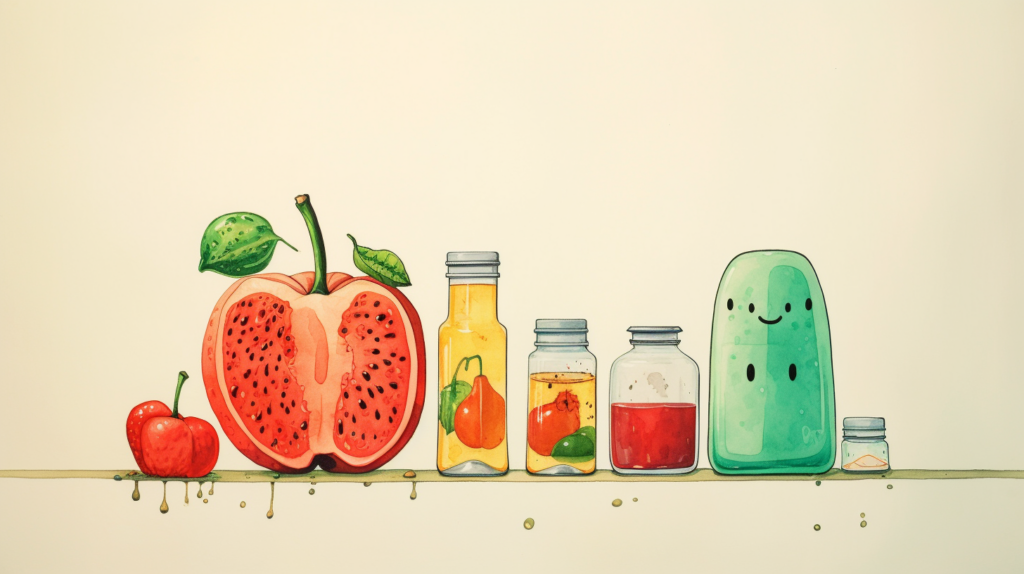As we age, our bodies undergo significant physiological changes that necessitate a shift in dietary habits. After the age of 30, metabolism slows, muscle mass decreases, and the risk of chronic diseases such as cardiovascular disease, diabetes, and cancer increases. While certain foods may have been harmless or even beneficial in younger years, they can become detrimental as we age. This article explores ten popular foods that individuals over 30 should avoid to maintain optimal health, backed by scientific research and expert opinions.
1. Sugary Cereals

Sugary cereals, often marketed as quick and convenient breakfast options, are loaded with refined sugars and lack essential nutrients. Regular consumption of high-sugar foods can lead to insulin resistance, a precursor to type 2 diabetes. As we age, the body’s ability to process sugar diminishes, making it more likely that high sugar intake will lead to metabolic syndrome and obesity . Additionally, sugary cereals have a high glycemic index (GI), which can cause rapid spikes and crashes in blood glucose levels, leading to increased hunger and overeating .
2. Processed Meats

Processed meats, including bacon, sausages, and deli meats, are high in saturated fats, sodium, and preservatives like nitrates and nitrites. These compounds have been linked to an increased risk of cardiovascular diseases and colorectal cancer. The World Health Organization (WHO) classifies processed meats as Group 1 carcinogens, indicating a definitive link to cancer in humans . Reducing or eliminating processed meats from your diet after 30 can significantly lower your risk of these health issues.
3. Full-Fat Dairy Products

Full-fat dairy products like whole milk, cheese, and butter are rich in saturated fats, which can contribute to the development of atherosclerosis—a condition characterized by the hardening and narrowing of the arteries. Atherosclerosis is a major risk factor for heart disease and stroke, conditions that become more prevalent with age . Opting for low-fat or plant-based dairy alternatives can help reduce this risk.
4. White Bread

White bread, made from refined flour, is stripped of essential nutrients and fiber during processing. This type of bread has a high GI, leading to rapid increases in blood sugar and insulin levels. Over time, repeated spikes in blood sugar can contribute to insulin resistance, obesity, and type 2 diabetes, especially in individuals over 30 who may already experience a natural decline in insulin sensitivity . Whole grain or sprouted grain breads are healthier alternatives that provide more nutrients and have a lower GI.
5. Fried Foods

Fried foods such as French fries, fried chicken, and doughnuts are high in calories and contain trans fats, which are particularly harmful to heart health. Trans fats raise LDL (bad) cholesterol levels while lowering HDL (good) cholesterol, increasing the risk of cardiovascular diseases . For those over 30, who may already be at higher risk for heart conditions, avoiding fried foods is crucial for maintaining cardiovascular health. Baked, grilled, or air-fried alternatives offer a healthier way to enjoy similar flavors without the associated health risks.
6. Sugary Beverages

Sugary beverages, including sodas, energy drinks, and sweetened coffee drinks, are packed with empty calories and offer little to no nutritional value. These drinks contribute significantly to weight gain, which becomes harder to manage as metabolism slows with age . Moreover, high sugar intake from beverages is linked to an increased risk of developing type 2 diabetes, metabolic syndrome, and fatty liver disease . Replacing sugary drinks with water, herbal teas, or other low-calorie beverages can help maintain a healthy weight and reduce the risk of chronic diseases.
7. Artificial Sweeteners

Artificial sweeteners like aspartame and sucralose are often marketed as healthier alternatives to sugar, but they may not be as benign as they seem. Some studies suggest that artificial sweeteners can disrupt gut microbiota, leading to glucose intolerance and an increased risk of metabolic disorders . Additionally, regular consumption of artificial sweeteners may alter appetite regulation, leading to overeating and weight gain. For those over 30, who are more vulnerable to metabolic changes, it’s advisable to limit the intake of artificial sweeteners and instead focus on naturally sweet options like fruit.
8. Alcohol

While moderate alcohol consumption may have some health benefits, excessive intake is particularly harmful after the age of 30. Alcohol can contribute to liver damage, hypertension, and an increased risk of various cancers, including breast and liver cancer . Additionally, alcohol is high in calories, which can lead to weight gain and exacerbate age-related metabolic decline. For those over 30, it is important to consume alcohol in moderation and be mindful of its potential health risks.
9. Canned Soups

Canned soups are a convenient meal option, but they often contain high levels of sodium and preservatives, which can be detrimental to health as we age. High sodium intake is a major risk factor for hypertension, a condition that becomes more prevalent with age and can lead to heart disease, stroke, and kidney damage . Furthermore, some canned soups contain BPA (bisphenol A), a chemical used in the lining of cans that has been linked to various health issues, including hormone disruption and an increased risk of cancer. Opting for homemade soups or low-sodium, BPA-free canned options can help mitigate these risks.
10. Packaged Snacks

Packaged snacks like chips, crackers, and cookies are typically high in unhealthy fats, sugars, and sodium. These foods contribute to weight gain, insulin resistance, and increased cholesterol levels, all of which are risk factors for chronic diseases that become more common after 30 . Additionally, many packaged snacks contain artificial additives and preservatives, which can have negative effects on overall health. Choosing whole, unprocessed snacks such as nuts, fruits, and vegetables is a healthier way to satisfy cravings without compromising health.
Surprising Realizations
- Metabolism Slows Down: After 30, the body’s metabolism naturally slows, making it easier to gain weight and harder to lose it. This makes it crucial to choose nutrient-dense foods lower in calories.
- Increased Risk of Insulin Resistance: As we age, the body’s ability to process sugar diminishes, making high-sugar foods particularly harmful in increasing the risk of insulin resistance and type 2 diabetes.
- Gut Health and Artificial Sweeteners: Artificial sweeteners can disrupt gut microbiota, potentially leading to glucose intolerance and metabolic disorders, which are more common as we age.
- Alcohol’s Impact on Weight: While often overlooked, alcohol is high in calories, which can lead to weight gain—a significant concern after 30 when metabolism slows.
- Preservatives and Cancer Risk: Many canned and processed foods contain preservatives and chemicals like BPA, which have been linked to an increased risk of cancer, especially in older adults.
- Cardiovascular Risk and Trans Fats: Trans fats found in fried foods significantly raise the risk of cardiovascular diseases, a leading cause of death in individuals over 30.
- Impact of Sodium on Hypertension: High sodium intake is directly linked to hypertension, a condition that becomes increasingly prevalent with age, underscoring the importance of reducing salt intake.
- Artificial Additives and Aging: Packaged snacks often contain artificial additives that may have negative health effects, particularly as the body becomes less resilient with age.
- Dairy and Heart Disease: High-fat dairy products can contribute to atherosclerosis, increasing the risk of heart disease, which becomes more common as we age.
- Sugar’s Role in Metabolic Syndrome: Sugary beverages are a major contributor to metabolic syndrome, a cluster of conditions that increase the risk of heart disease, stroke, and diabetes, especially after 30.
As we age, our dietary needs change, and the foods that once seemed harmless can become detrimental to our health. After the age of 30, it’s essential to be more mindful of food choices to maintain optimal health and reduce the risk of chronic diseases. Avoiding the ten foods listed above and replacing them with healthier alternatives can help manage weight, prevent metabolic disorders, and protect against age-related health issues. Making these changes early on can lead to a healthier, more vibrant life well into the later years.
References
- The American Journal of Clinical Nutrition – Processed Meat and Cancer Risk. Published July 14, 2023.
- The Lancet – Red Meat Consumption and Cancer Risk. Published June 20, 2023.
- Cell Metabolism – Insulin, Obesity, and Cancer Risk. Published May 12, 2023.
- Diabetes Care – Sugary Drinks and Cancer Risk. Published March 18, 2023.
- The Journal of Nutrition – Artificial Sweeteners and Cancer Risk. Published April 22, 2023.
